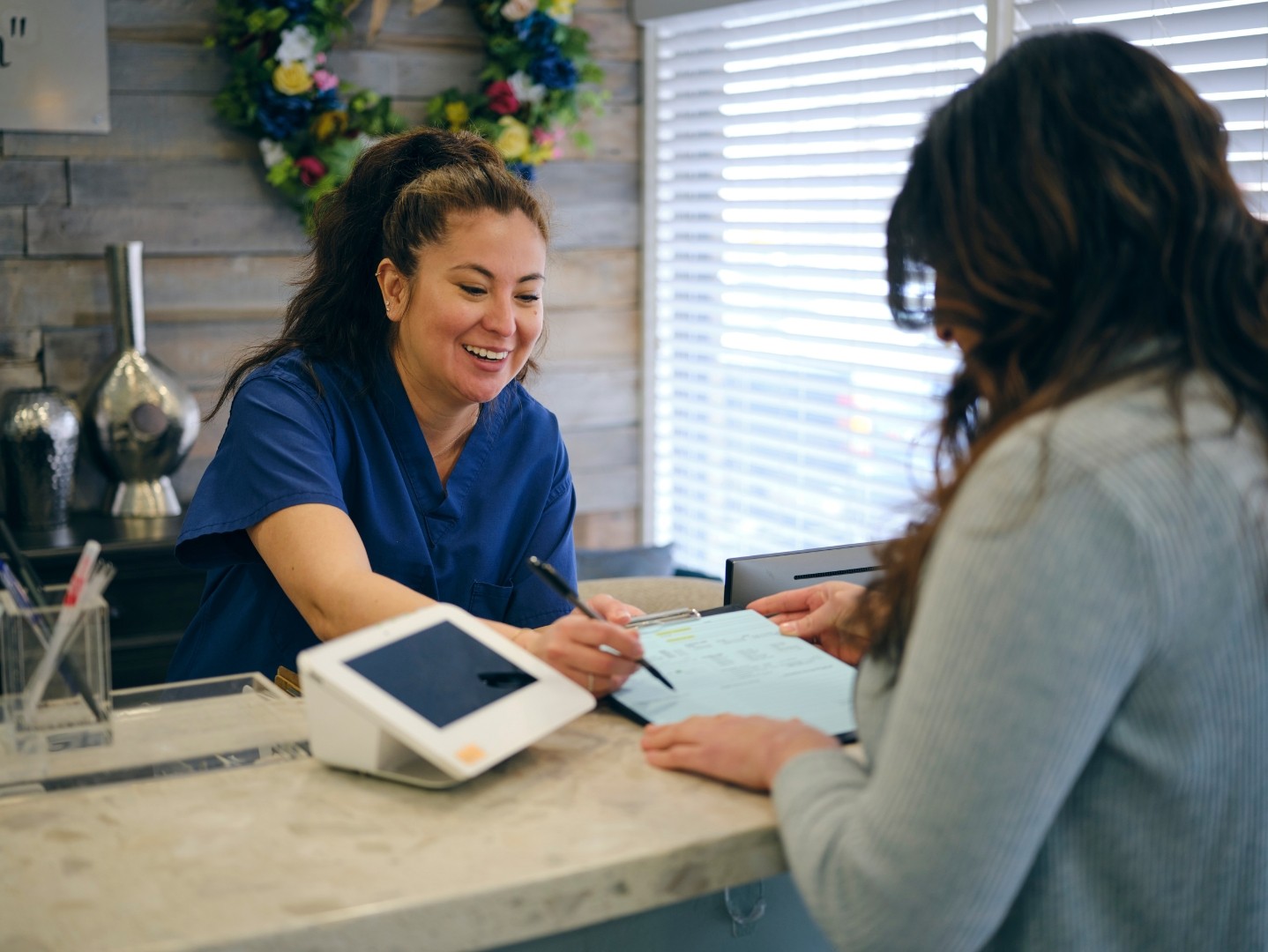Dental industry update | AI and VAs are changing the game

Dental industry update | AI and VAs are changing the game
Like any other type of business worldwide, the dental industry has been adapting to times linked to digital technologies for some time now. But now we have two new phenomena: remote assistance and artificial intelligence.
The rise of AI in dentistry leads us to believe that how we manage our businesses and care for our patients must change. That is why we already have expert hands for virtual assistants at Reach.
There is much to review about artificial intelligence and virtual assistants. That's what we'll talk about in this article.
Dentistry is experiencing a revolution in many facets.
The American Dental Association reports that nearly 80% of dental professionals believe future roles for AI exist in dental practice and that the future could be bright because of AI.
Efforts in dental AI thus far are best characterized as a work in progress, compared to the story told by AI's past efforts in other industries.
Today, the power of AI is harnessed through the cloud. Algorithms taught through data are used to make inferences, which can then be used to solve various clinical problems.
In addition, AI can robotize routine tasks, such as appointment scheduling, patient reminders, and follow-ups. These tasks are mainly time-consuming and are often considered low-priority.
They may be somewhat impersonal and robotic, but the technology exists.
Such tasking is amenable to AI and can allow professionals to redirect their attention to more pressing patient care matters. Nothing can ameliorate the pre-visit experience and the patient's in-practice time. In that case, it's a no-brainer that AI practices can increase their revenue, improve patient retention, and reduce appointment no-shows.
Virtual Assistants in dental offices
Today, AI and VAs coexist. Not only do they offer you efficient process automation, but they also improve customer service.
Virtual assistants' constant support for the office's patients is a significant advantage. Dental office call volumes are high, and a dedicated virtual assistant moves the business closer to a model where patient inquiries can be addressed in real time. A real-time response improves patient satisfaction and allows the dental office's human staff to concentrate on what they do best: delivering quality, efficient care.
Further, virtual assistants can help with:
- Checking that patients have the right insurance is a painstaking and multifaceted chore. Appending myriad appointment-related details with the kinds of insurance a potential patient needs to have (or not have) may tax the front desk's human bandwidth.
- Happily, virtual assistants can take on that task without approaching the front desk's current human resource problem.
Enhancing patient communication
The dental industry needs effective communication. AI chatbots and virtual assistants can enable real-time communication with patients, handling inquiries and service directions that make them feel more engaged and satisfied with their interactions with the dental practice.
This enhanced support tries to improve several issues in the dental industry, as follows:
- The practice must be accessible; that is the first criterion for immediate patient communication. Enhanced accessibility means more patient interaction and a smoother pathway to immediate action.
- Additionally, AI-powered tools can interpret patient feedback and ascertain their wishes, enabling dental practices to cater to their clientele.
- A better relationship between the client and the client-business. The more practices can personalize the patient experience, the better the patient relationship.
Future prospects
The incorporation of artificial intelligence and virtual assistants in dental offices is in the nascent stage.
Take predictive analytics, for example. Artificial intelligence could help with this in the dental practice of the future. Using historical data, AI could help offices predict in real time what services patients might need and what trends might be on the horizon.
AI and Virtual Assistants side-by-side
Our position on IA and VA is clear: we believe they can coexist in dental practices. However, in customer service, no one wants a chatbot; everyone wants a real person to listen to their concerns. That's where VAs come into the game.
It offers that human side that new technologies have left aside. AI and VA already coexist, but there is no price for the empathy of a real person.
For dental practices wanting to take advantage of virtual assistants and AI, aligning with a company like Reach can smooth the path through this technological and professional change.
You will learn more about our VAs through a 30-minute call with our team.
Schedule a Discovery Call
Fill out the form and our team will be in touch within 24 hours.



.png)


